As environmental concerns continue to grow, more cities across the United States are implementing measures to reduce plastic waste. Philadelphia, the largest city in Pennsylvania, is one of those cities taking action by introducing a plastic bag tax. This tax aims to discourage the use of single-use plastic bags and encourage residents to adopt more sustainable alternatives.
The plastic bag tax in Philadelphia was implemented on January 1, 2022. Under this new regulation, a fee of 15 cents will be charged for every single-use plastic bag provided to customers at most retail establishments, including grocery stores, convenience stores, and drugstores. This fee also applies to bags used for takeout food and other goods.
Why the plastic bag tax?
The plastic bag tax is an initiative to reduce plastic bag consumption and encourage the use of reusable bags. Plastic bags are often used for a short period of time before being discarded, which contributes to significant environmental pollution. They can take hundreds of years to decompose and are frequently found as litter on streets, in waterways, and in landfills.
By implementing the plastic bag tax, Philadelphia hopes to reduce the amount of plastic waste generated in the city and promote a more sustainable lifestyle among its residents.
How can residents avoid the plastic bag tax?
To avoid paying the 15-cent fee for each plastic bag, residents of Philadelphia are encouraged to bring their own reusable bags when shopping. Reusable bags are made of durable materials and can be used multiple times, reducing the need for single-use plastic bags. They are not subject to the tax, making them a cost-effective and eco-friendly alternative.
The introduction of the plastic bag tax is part of Philadelphia’s commitment to protecting the environment and creating a greener city for future generations.
- What is the plastic bag tax in Philadelphia?
- Why was the plastic bag tax implemented?
- Who is affected by the plastic bag tax?
- How much is the plastic bag tax in Philadelphia?
- Where does the money from the plastic bag tax go?
- Q&A:
- Why was the plastic bag tax implemented in Philadelphia?
- How much is the plastic bag tax in Philadelphia?
- When did the plastic bag tax start in Philadelphia?
- What types of businesses are required to collect the plastic bag tax?
- What happens to the revenue generated from the plastic bag tax in Philadelphia?
- What is the plastic bag tax in Philadelphia?
What is the plastic bag tax in Philadelphia?
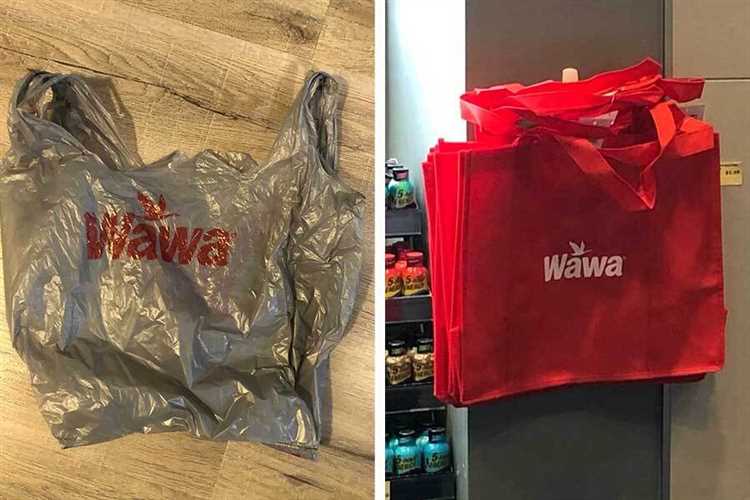
The plastic bag tax in Philadelphia is a local tax that was implemented in an effort to reduce the amount of plastic bags used and discarded in the city. The tax is aimed at encouraging residents and businesses to transition to more sustainable alternatives, such as reusable bags.
Under the plastic bag tax, a fee of $0.15 is imposed on each non-exempt bag provided by a retailer to a consumer at the point of sale. The tax applies to businesses that sell goods and provide bags at the point of sale, including grocery stores, convenience stores, and other retail establishments.
However, there are certain exemptions to the plastic bag tax in Philadelphia. The tax does not apply to bags used for loose bulk items, bags used to wrap frozen foods, bags used to contain live animals, or bags used to hold prescription drugs from pharmacies.
The revenue generated from the plastic bag tax is allocated to various environmental initiatives in the city, including efforts to clean up and maintain parks, rivers, and other public spaces. The tax is seen as a way to not only reduce plastic waste, but also to support environmental conservation and improvement projects in Philadelphia.
It is important for residents and businesses in Philadelphia to be aware of the plastic bag tax and its implications. By choosing to use reusable bags and reducing reliance on single-use plastic bags, individuals can contribute to a cleaner and more sustainable city.
Why was the plastic bag tax implemented?
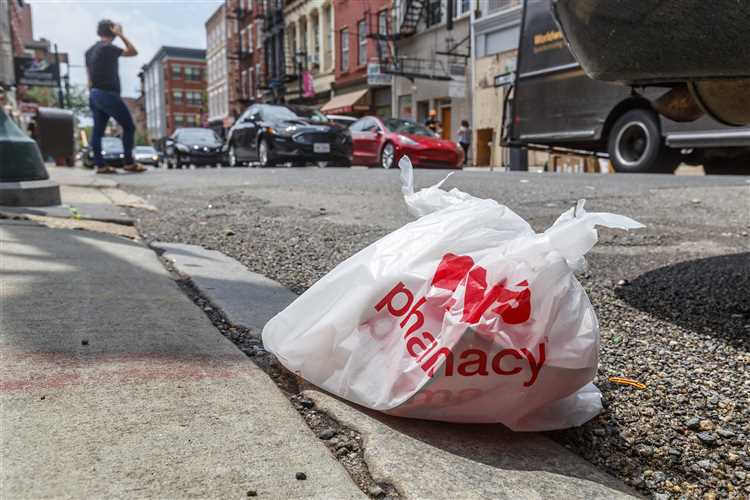
The plastic bag tax in Philadelphia was implemented for several reasons, with one of the main goals being to reduce the negative impact of plastic bags on the environment. These bags are not biodegradable and can take hundreds of years to break down, contributing to pollution and harming wildlife.
Another reason for the implementation of the plastic bag tax was to encourage consumers to use reusable bags instead. By charging a tax on single-use plastic bags, it provides an economic incentive for individuals to bring their own bags when shopping. This promotes sustainable practices and reduces the overall demand for plastic bags, ultimately helping to decrease the amount of waste generated.
The tax also serves as a source of revenue for the city. The funds generated from the plastic bag tax can be used to support environmental initiatives, such as recycling programs, waste management, and educational campaigns. It allows the city to invest in infrastructure and resources that contribute to a cleaner and more sustainable environment.
Additionally, the plastic bag tax helps to create awareness about the environmental impact of plastic bags. By implementing the tax, it encourages individuals and businesses to rethink their consumption habits and explore alternative options that are more environmentally friendly. It can spark conversations and prompt further action towards reducing plastic waste.
Overall, the plastic bag tax in Philadelphia was implemented to address the ecological concerns associated with single-use plastic bags, promote sustainable practices, generate revenue, and raise awareness about the importance of reducing plastic waste. It is part of a larger effort to create a more environmentally conscious and sustainable city.
Who is affected by the plastic bag tax?
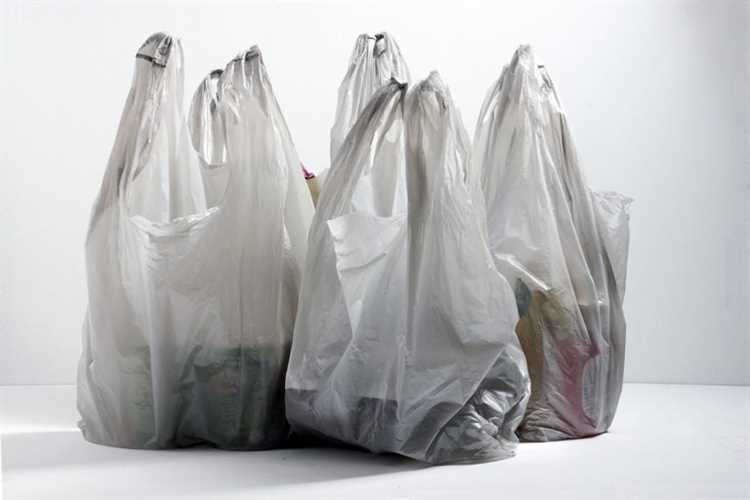
The plastic bag tax in Philadelphia affects most retail establishments where goods are sold. This includes grocery stores, convenience stores, department stores, pharmacies, and restaurants. Any business that provides plastic bags or paper bags with a thickness less than 2.25 mils for the purpose of carrying goods is subject to the tax.
In addition, customers who purchase goods from these establishments and opt for a plastic or paper bag will be affected by the tax. The tax applies to each bag provided, regardless of the number of items it carries. However, there are exemptions for certain types of bags, such as those used for wrapping perishable items, pharmacy prescriptions, and newspapers. Customers who bring their own reusable bags are not subject to the plastic bag tax.
The plastic bag tax aims to encourage individuals to reduce their use of single-use bags and promote environmentally friendly alternatives. By imposing a tax on plastic and paper bags, the city hopes to incentivize consumers to bring their own reusable bags when shopping, ultimately reducing the amount of plastic waste and litter in Philadelphia.
How much is the plastic bag tax in Philadelphia?
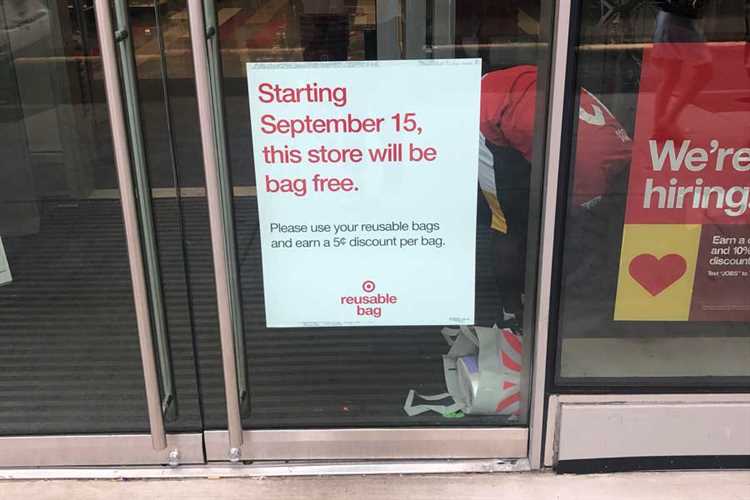
The plastic bag tax in Philadelphia is $0.15 per bag. This tax applies to all plastic bags, including those provided at grocery stores, convenience stores, and other retailers. The purpose of the tax is to encourage people to bring reusable bags when shopping and reduce the use of single-use plastic bags.
It’s important to note that certain types of bags are exempt from the tax, such as bags provided by pharmacies for prescription medications and bags for bulk items like nuts or produce. Additionally, customers who participate in nutrition assistance programs like SNAP or WIC are exempt from paying the tax.
The plastic bag tax was implemented in Philadelphia on July 1, 2021, as part of the city’s effort to reduce plastic waste and promote sustainability. The revenue generated from the tax will be used for environmental initiatives and programs in the city.
To avoid paying the plastic bag tax, residents and visitors are encouraged to bring their own reusable bags when shopping. Reusable bags are a more sustainable option as they can be used multiple times and help reduce plastic pollution. Many stores also sell reusable bags at affordable prices, making them easily accessible to everyone.
By implementing the plastic bag tax, Philadelphia aims to create a cleaner and more environmentally-friendly city. The tax not only encourages individuals to make sustainable choices but also supports efforts to protect the city’s ecosystems and conserve resources for future generations.
Where does the money from the plastic bag tax go?
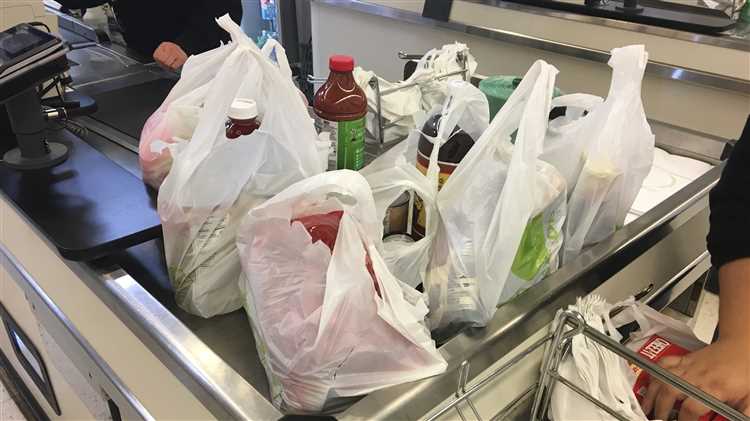
In Philadelphia, the money collected from the plastic bag tax is allocated to several different initiatives and programs. The city uses the revenue from the tax to fund various sustainability and environmental projects, as well as to support the education and outreach efforts related to reducing plastic waste.
A portion of the funds is dedicated to the Philadelphia Streets Department, which is responsible for maintaining and improving the city’s infrastructure, including waste management and recycling programs. This helps ensure that the city has the necessary resources to properly handle and dispose of plastic bags in an environmentally friendly manner. The revenue is also used to support the city’s efforts in improving recycling infrastructure and expanding access to recycling services.
Additionally, some of the money from the plastic bag tax goes towards public education initiatives aimed at encouraging residents and businesses to reduce their reliance on plastic bags and make more sustainable choices. This includes providing resources and information about reusable bag options, as well as promoting the use of alternative packaging materials.
The city also uses a portion of the revenue to implement and enforce the plastic bag tax, covering administrative and operational expenses. This ensures that the tax can be effectively implemented and that the funds are used in the most efficient way possible.
Ultimately, the money collected from the plastic bag tax in Philadelphia is reinvested back into the community to support sustainability efforts, improve waste management infrastructure, and educate the public about the importance of reducing plastic waste.
Q&A:
Why was the plastic bag tax implemented in Philadelphia?
The plastic bag tax was implemented in Philadelphia to reduce the use of single-use plastic bags that contribute to environmental pollution, especially in waterways and landfills.
How much is the plastic bag tax in Philadelphia?
The plastic bag tax in Philadelphia is $0.15 per bag.
When did the plastic bag tax start in Philadelphia?
The plastic bag tax started in Philadelphia on October 1, 2021.
What types of businesses are required to collect the plastic bag tax?
All retail establishments that sell goods and provide single-use plastic bags to customers are required to collect the plastic bag tax in Philadelphia.
What happens to the revenue generated from the plastic bag tax in Philadelphia?
The revenue generated from the plastic bag tax in Philadelphia is used for environmental programs and initiatives, such as promoting reusable bags and funding local cleanup efforts.
What is the plastic bag tax in Philadelphia?
The plastic bag tax in Philadelphia is a law that requires retailers to charge customers a fee of 15 cents for each disposable plastic or paper bag they provide at checkout.